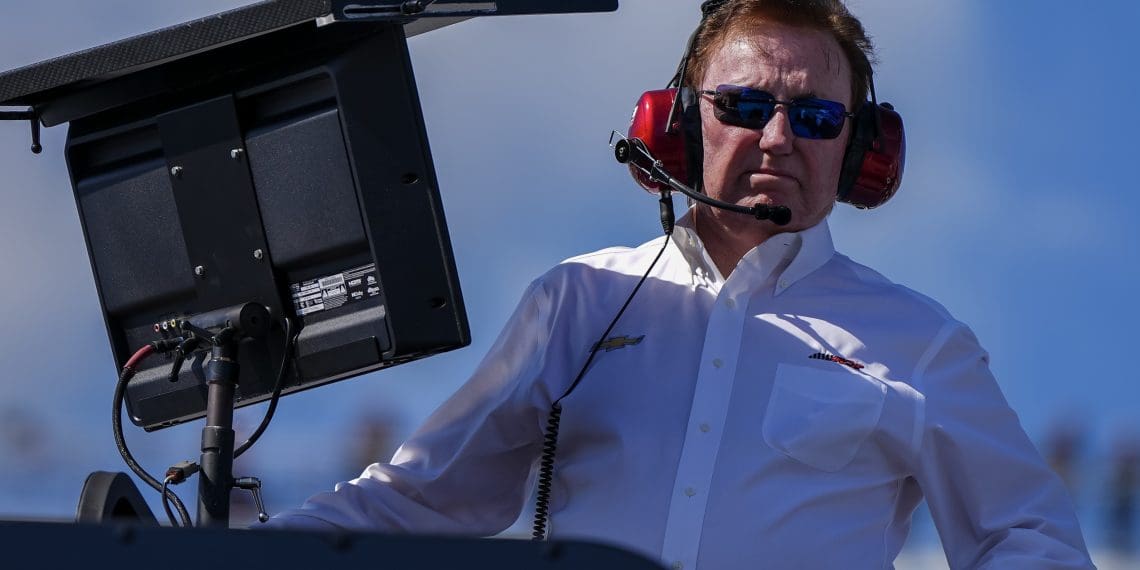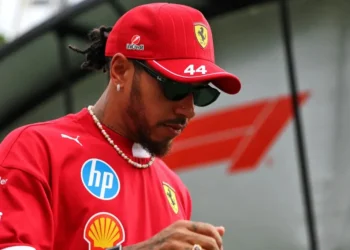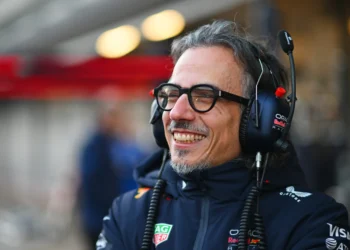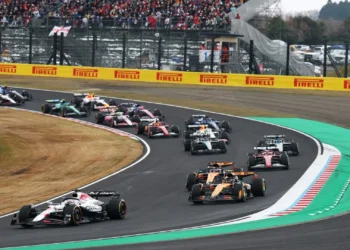The NASCAR world was shaken when 23XI Racing, co-owned by Michael Jordan and Denny Hamlin, teamed up with Front Row Motorsports (FRM) to file a federal anti-trust lawsuit against NASCAR. The lawsuit alleges that the sport’s governing body has engaged in monopolistic practices in relation to the 2025-2031 charter agreements. While other teams signed the new deal, 23XI and FRM refused, leading to this dramatic legal battle.
Richard Childress, the Hall of Fame team owner of Richard Childress Racing (RCR), shared his thoughts on the lawsuit ahead of the Talladega playoff race, offering a balanced but cautious take on the situation.
When asked about the legal action, Childress was measured in his response, neither expressing strong approval nor disdain for the lawsuit. He admitted that RCR is unlikely to join the coalition but left the door open for further developments, as NASCAR itself has yet to issue a comprehensive response.
“I don’t know how you phrase happy on this,” Childress said. “I would just say that I don’t think we can join, I don’t know, it’s way too early to talk about all the legal stuff. NASCAR hasn’t even come back with an answer. I’m sure they’re looking at antitrust attorneys, I know they are, and we’ll go from there.”
While he remains neutral on the legal aspect, Childress pointed out the potential consequences if 23XI and FRM are successful. He emphasized that any benefits resulting from a legal victory should apply to all teams, not just the plaintiffs. Childress expressed concern about an unequal playing field if a settlement were to provide special advantages to the two teams involved in the lawsuit.
“I think it will [be decided] by the law, but we don’t have a favored nation clause in our charter, which is not fair to me. Everybody should be treated equally. How do I know they’re not going to give somebody a bigger restrictor plate or pay someone $20 million more than me? We don’t know without a favored nation.”
Childress also reflected on why he, like many other team owners, felt compelled to sign NASCAR’s charter agreement despite reservations. He recalled that he was given just six hours to sign the contract or risk losing his team’s charter—a crucial asset for any NASCAR operation. With the livelihoods of over 400 employees and multiple contracts on the line, Childress said he had no choice but to sign the agreement under immense pressure.
“Well, we’ve read it all, I can’t comment a whole lot now because I know attorneys are handling a lot of that. But I will say that the part about, we got our Docusign that evening at 6:37 is when it came in, and we had to sign it by 12 o’clock or we’d lose our charters. I didn’t have a choice, because we had to sign. I’ve got over 400 employees, OEM contracts, contracts with sponsors, and I’ve gotta take care of my team.”
Like many of his counterparts, Childress found himself in a difficult position. The “take it or leave it” nature of the charter deal left team owners with no real alternative but to sign, as the potential financial and operational fallout from not signing would have been devastating. Now, he is keen to see how the lawsuit unfolds and what it might mean for teams like RCR.
As the legal process continues, Childress and other team owners will be watching closely, curious about how it will impact the future landscape of NASCAR.










